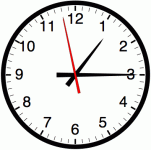Chess clocks
Don't intend to take a position in the debate, just want to provide some info that may be helpful. As BJ said, Europe has gone through this process in the past 20 years, and we've asked ourselves the same questions.
1) Time-keeping, in some form, is a very good thing from a spectator viewpoint, but more importantly, it is necessary to keep the playing field level. Being slow (by nature, or as a deliberate tactic) should not be an advantage.
2) The Dutch league (in the highest division, that is) uses time-clocks in its 50 pt matches, 50 sec, two time-outs. Works well, but there are several disadvantages. a) the clocks are very expensive, most brands are 700 / 900 euro, have never seen any under 500. b) they need to be operated by referees, using clickers. Experience has taught us, that no amateur will be able to referee and use the clickers, without some training and hours of experience. All sorts of things come into play: the use of cue-extensions, having to wait for the adjacent table, etc. If the ref forgets his clicker just once, you have an incident at the table, nobody wants that.
3) The Belgians use the chess clock, and I applaud that. a) responsibility goes back where it belongs: to the player. Wanna study a shot for three minutes? Go ahead, but you'll have to make up for it. Heated arguments about bathroom breaks, whether used for peeing or smoking, can be a thing of the past b) chess clocks cost next to nothing. c) a tournament director can plan rounds of play, knowing a match cannot last longer than x minutes.

